Preparing for surgery can feel overwhelming, but having clear instructions can make the process much smoother. In this article, we'll walk you through essential pre-operative steps to ensure you're well-prepared and feel confident on the day of your procedure. From understanding necessary dietary restrictions to identifying which medications to avoid, we've got you covered. So, let's dive in and arm you with all the information you need before heading into surgery!
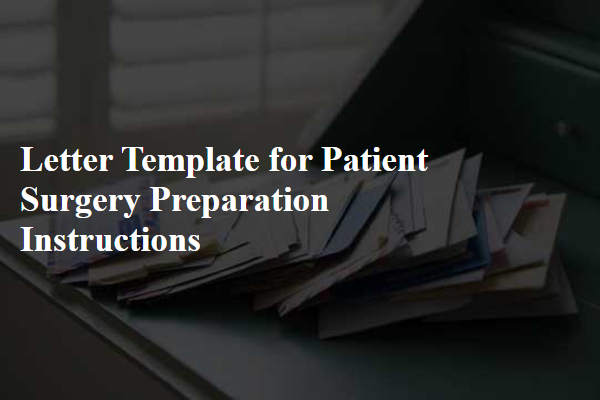
Patient Information and Contact Details
Proper preparation for surgery is essential for patient safety and recovery. The first step involves gathering accurate patient information, including full name, date of birth, and primary contact details, such as phone number and email address. Patients must also provide a list of current medications, allergies, and medical history, including any prior surgeries or health conditions. Furthermore, patients should confirm their scheduled surgical date and time, typically arranged by the healthcare facility, to ensure attendance and facilitate pre-operative assessments. It's crucial for patients to reach out to the surgical team with any concerns or questions, promoting clear communication and understanding before the procedure.
Pre-operative Instructions and Guidelines
Pre-operative instructions serve as essential guidelines to ensure patients are adequately prepared for upcoming surgical procedures. Patients must confirm their appointment date (typically in a surgical facility) and time (often early morning) to mitigate delays. Fasting requirements include refraining from food and drink for at least 8 hours prior to surgery to reduce anesthesia risks. Key medications, such as blood thinners (e.g., warfarin) or diabetes medications (e.g., insulin), should be discussed with the healthcare provider to determine whether any adjustments are necessary. Arrangements for transportation post-surgery, due to potential effects of anesthesia, are crucial. Patients must wear comfortable, loose-fitting clothing on the day of surgery and avoid makeup or jewelry, including piercings, to facilitate medical assessments. Compliance with these instructions significantly enhances the likelihood of a successful surgical outcome.
Medication and Dietary Restrictions
Patients undergoing surgery, such as a laparoscopic cholecystectomy (gallbladder removal), must adhere to specific dietary and medication guidelines to ensure optimal outcomes. All solid food consumption must cease for at least eight hours prior to surgery to reduce the risk of aspiration during anesthesia. Clear liquids, including water, apple juice, and broth, are permitted up until two hours before the procedure. Medications pose additional considerations; blood thinners like warfarin or aspirin must be discontinued according to the surgeon's directives, generally 5 to 7 days before surgery to minimize bleeding risks. Furthermore, diabetic patients must consult their healthcare provider about insulin adjustments to maintain safe glucose levels preoperatively. Following these instructions is critical to ensure a smooth surgical experience and promote effective recovery.
Appointment and Arrival Details
Preparation for surgery involves critical appointment and arrival details to ensure a smooth process. The surgical appointment, scheduled at the renowned City Hospital, will take place on December 15, 2023, at 10:00 AM. Patients should arrive at least two hours prior to the appointment time to complete pre-operative assessments and paperwork. Parking facilities are available on-site, with designated areas for patients undergoing surgery. Valid identification (state-issued ID or driver's license) and insurance documentation must be brought to the appointment for verification purposes. Additionally, please refrain from eating or drinking anything after midnight prior to the surgery day, as this is crucial for anesthesia safety. Prior to arrival, ensure all prescribed medications have been discussed with the medical team to avoid any interactions during the surgical procedure.
Post-operative Care and Follow-up Instructions
Post-operative care is crucial for recovery following surgical procedures, such as appendectomy. Patients must monitor incision sites for signs of infection, including redness or discharge. Pain management can involve medications prescribed by the surgeon, typically starting within the first 24 hours after surgery. It's vital to maintain a balanced diet, incorporating fiber-rich foods to prevent constipation, a common issue post-surgery. Rest is essential, recommending at least 48 hours of minimal physical activity. Follow-up appointments, usually scheduled within one to two weeks after surgery, allow healthcare providers to assess healing and remove stitches if necessary. Adhering to these guidelines promotes optimal recovery and reduces the risk of complications.
Letter Template For Patient Surgery Preparation Instructions Samples
Letter template of comprehensive pre-surgical instructions for patients.
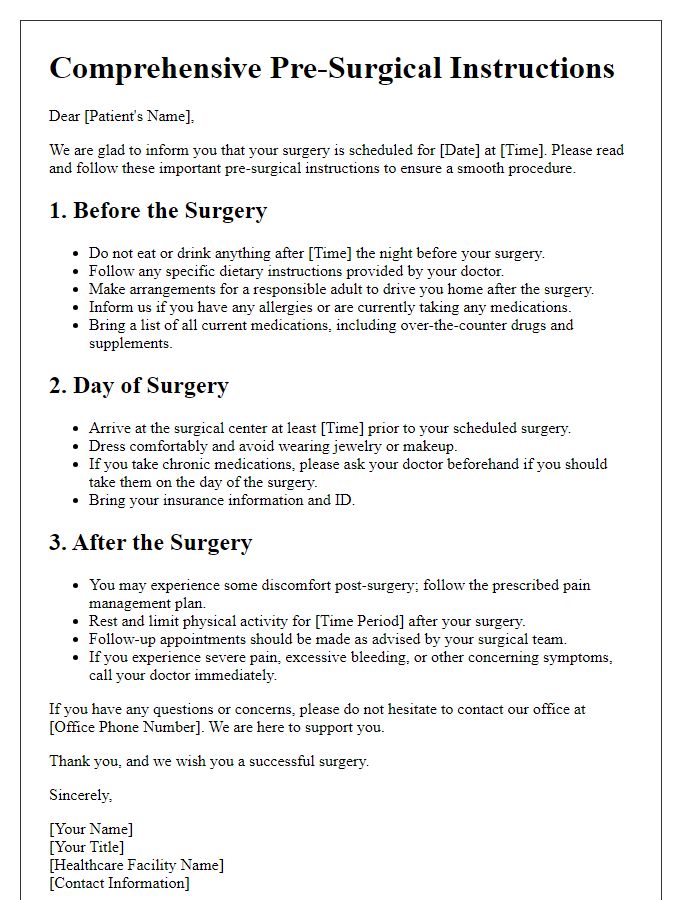

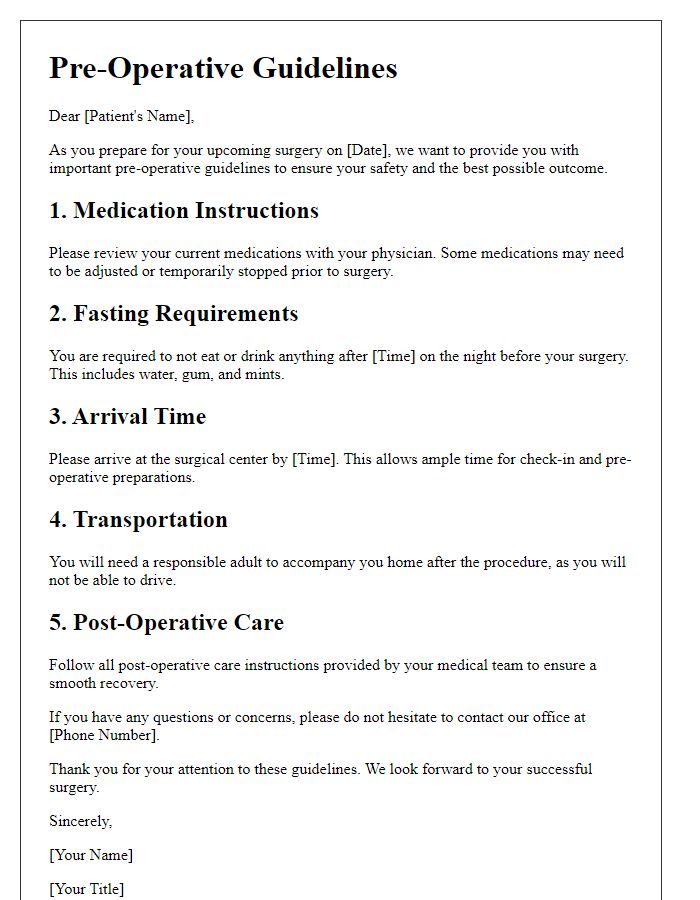
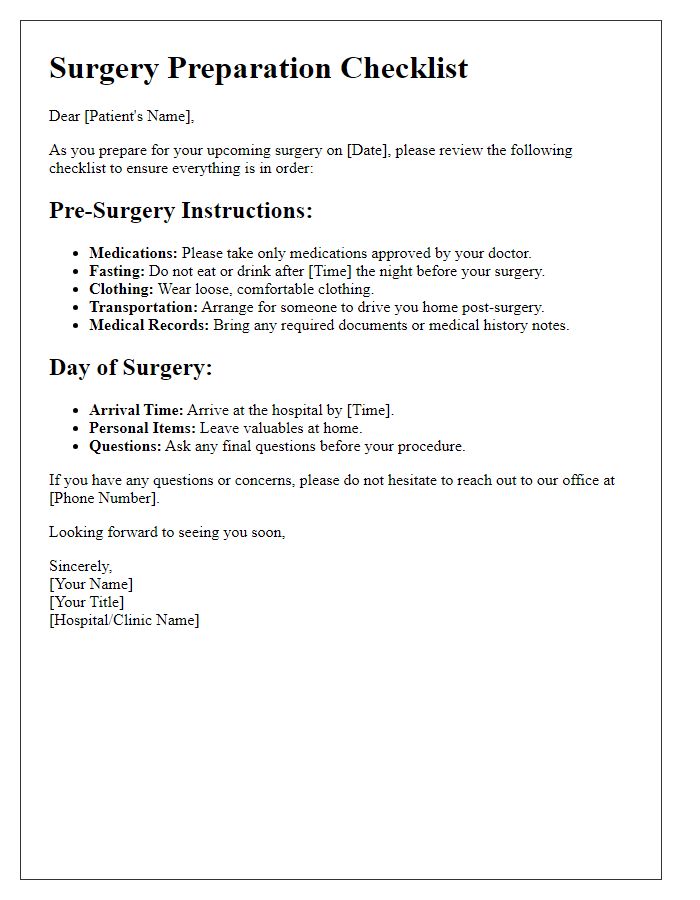
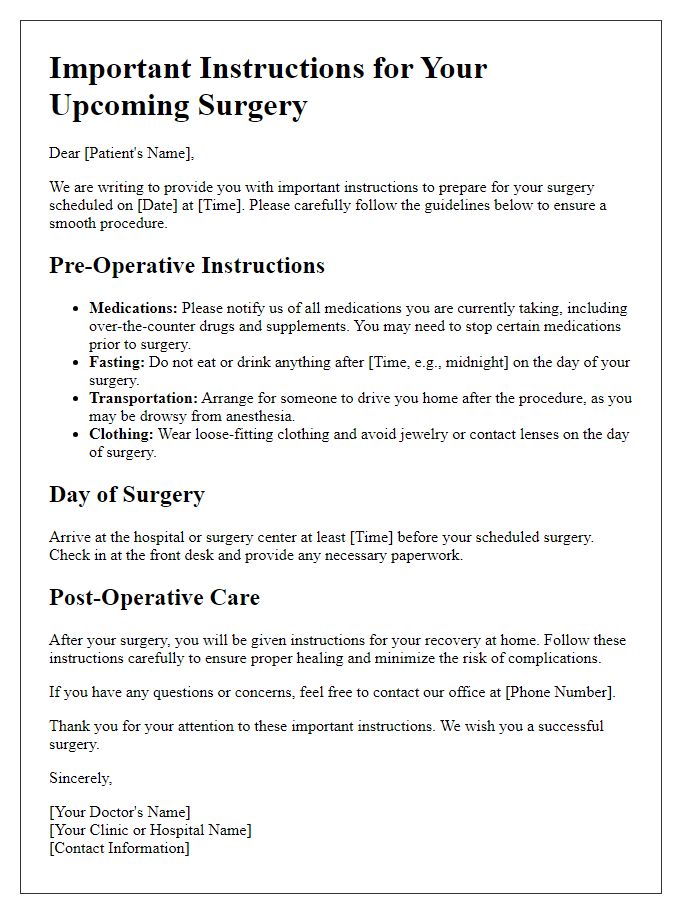
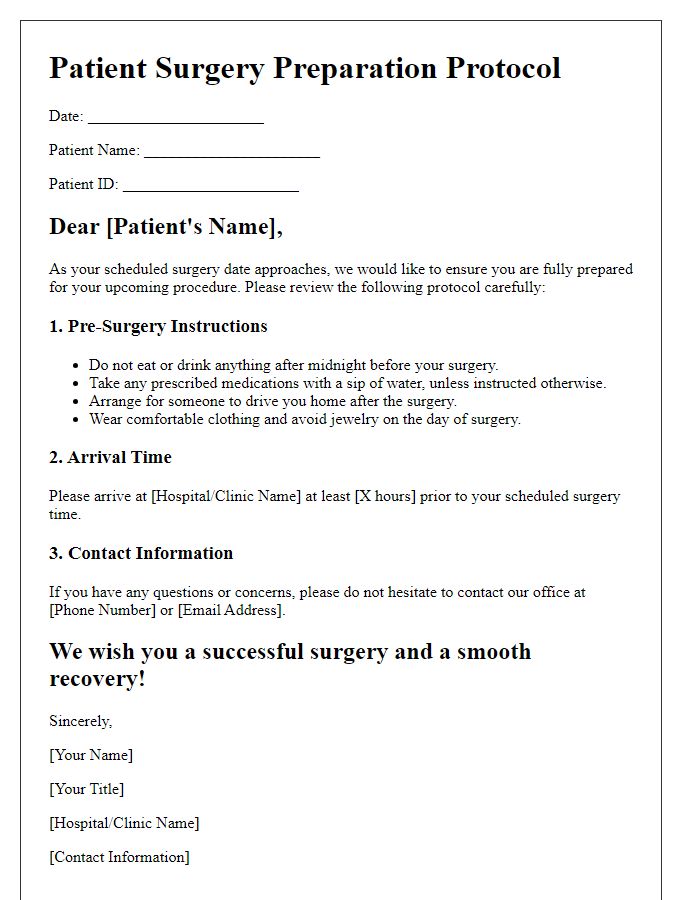
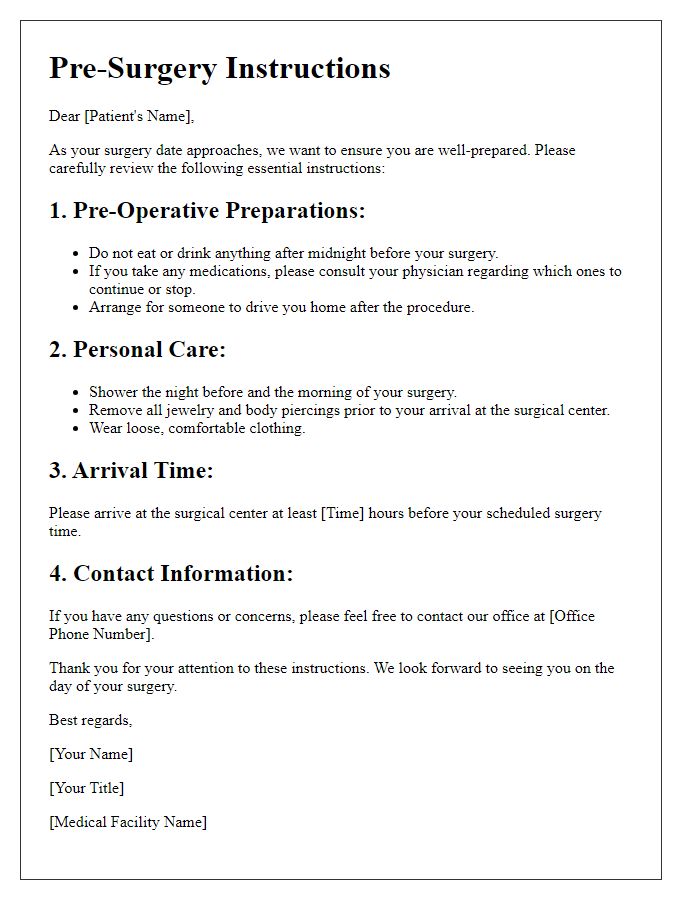
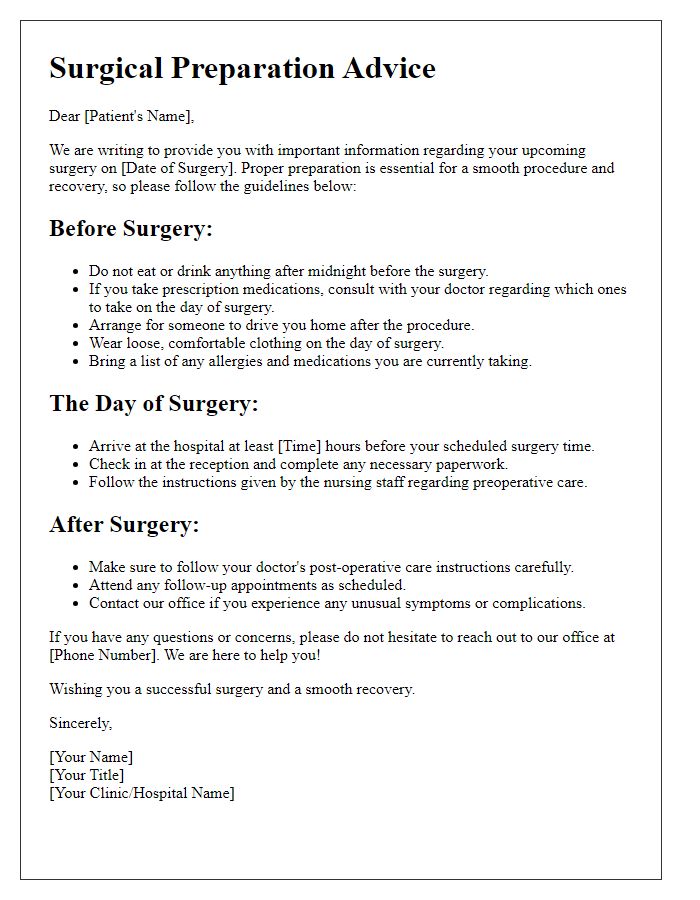
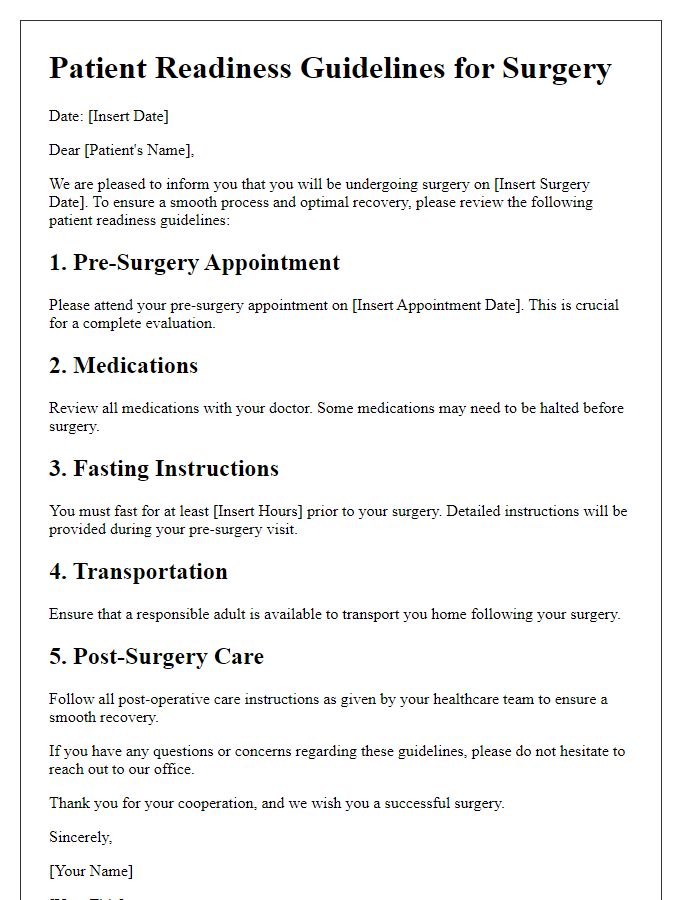
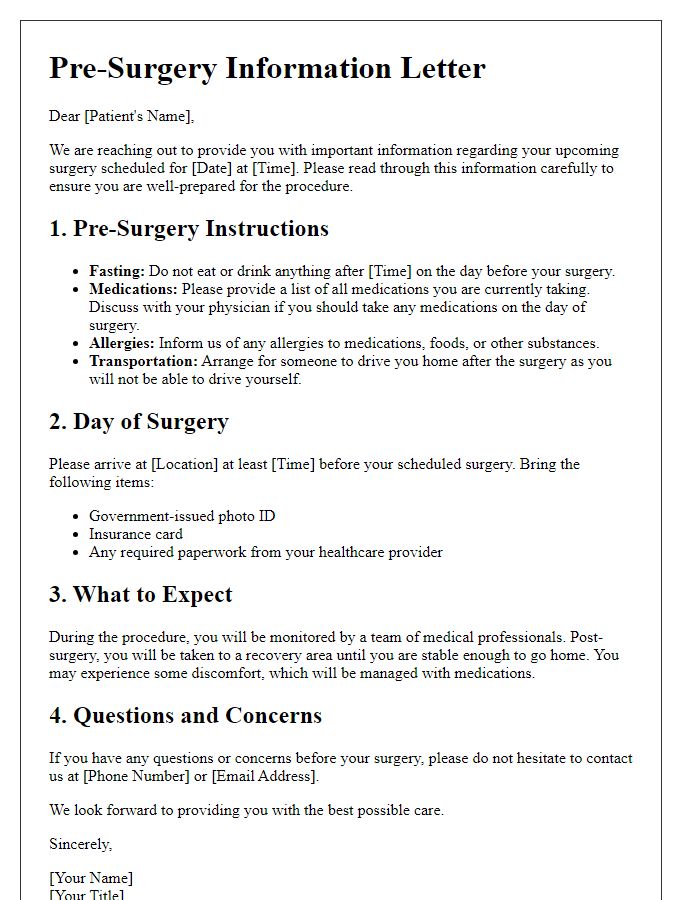
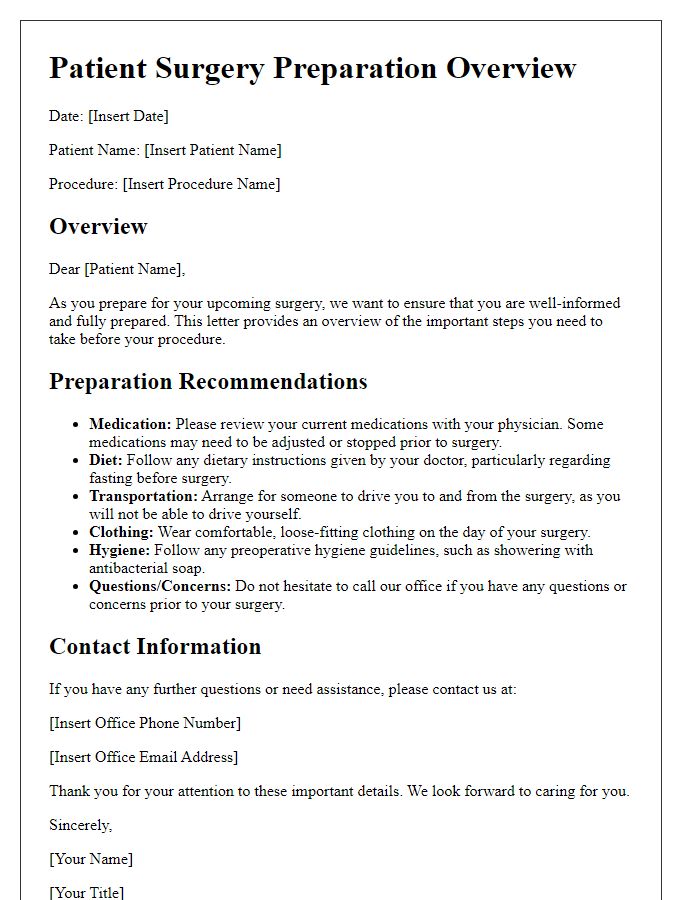

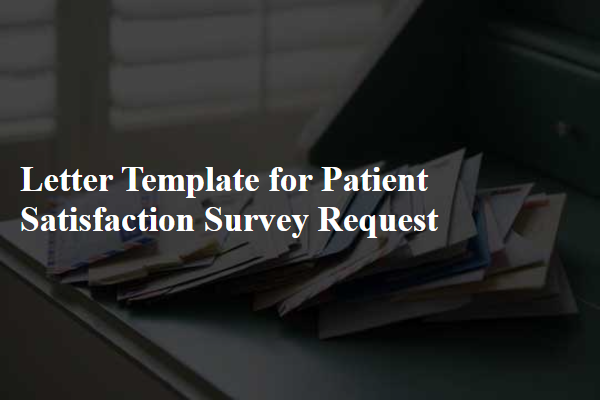
Comments